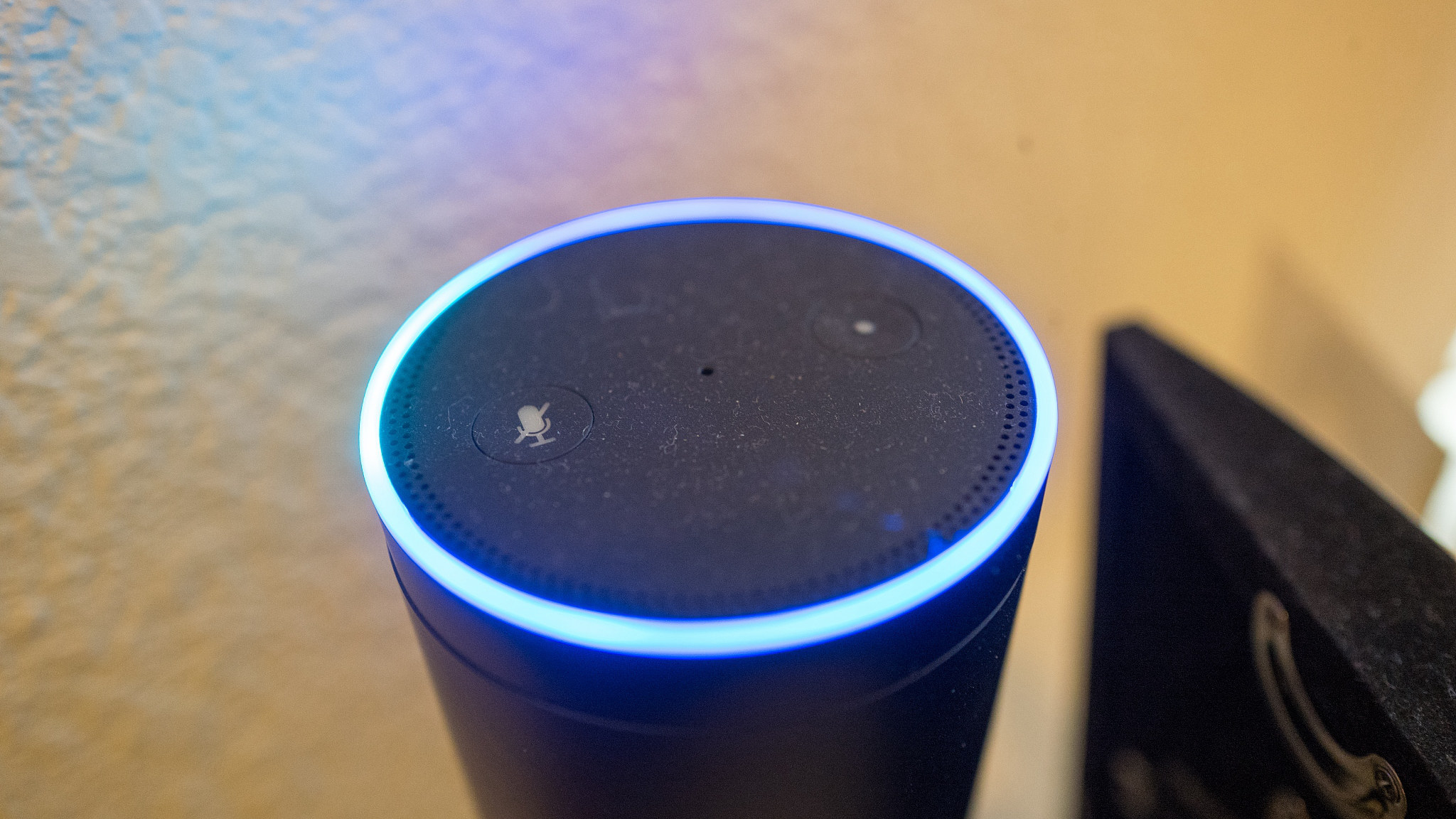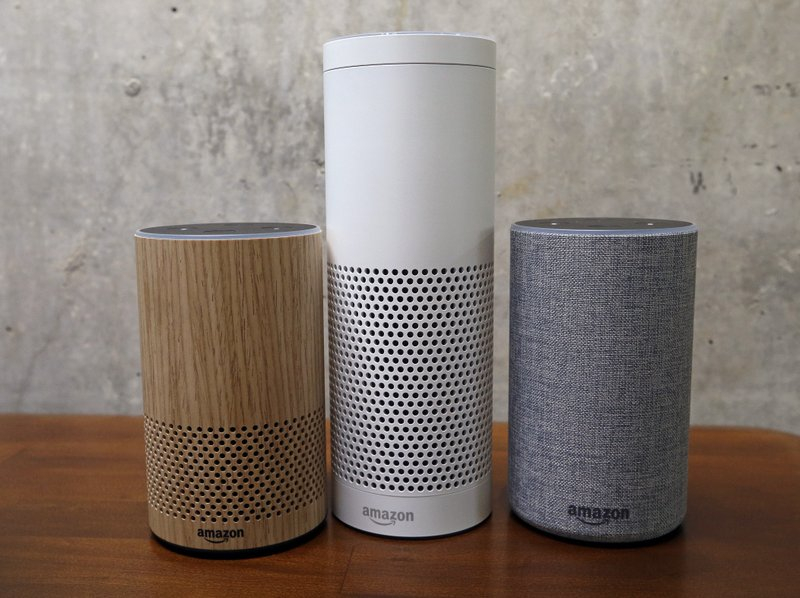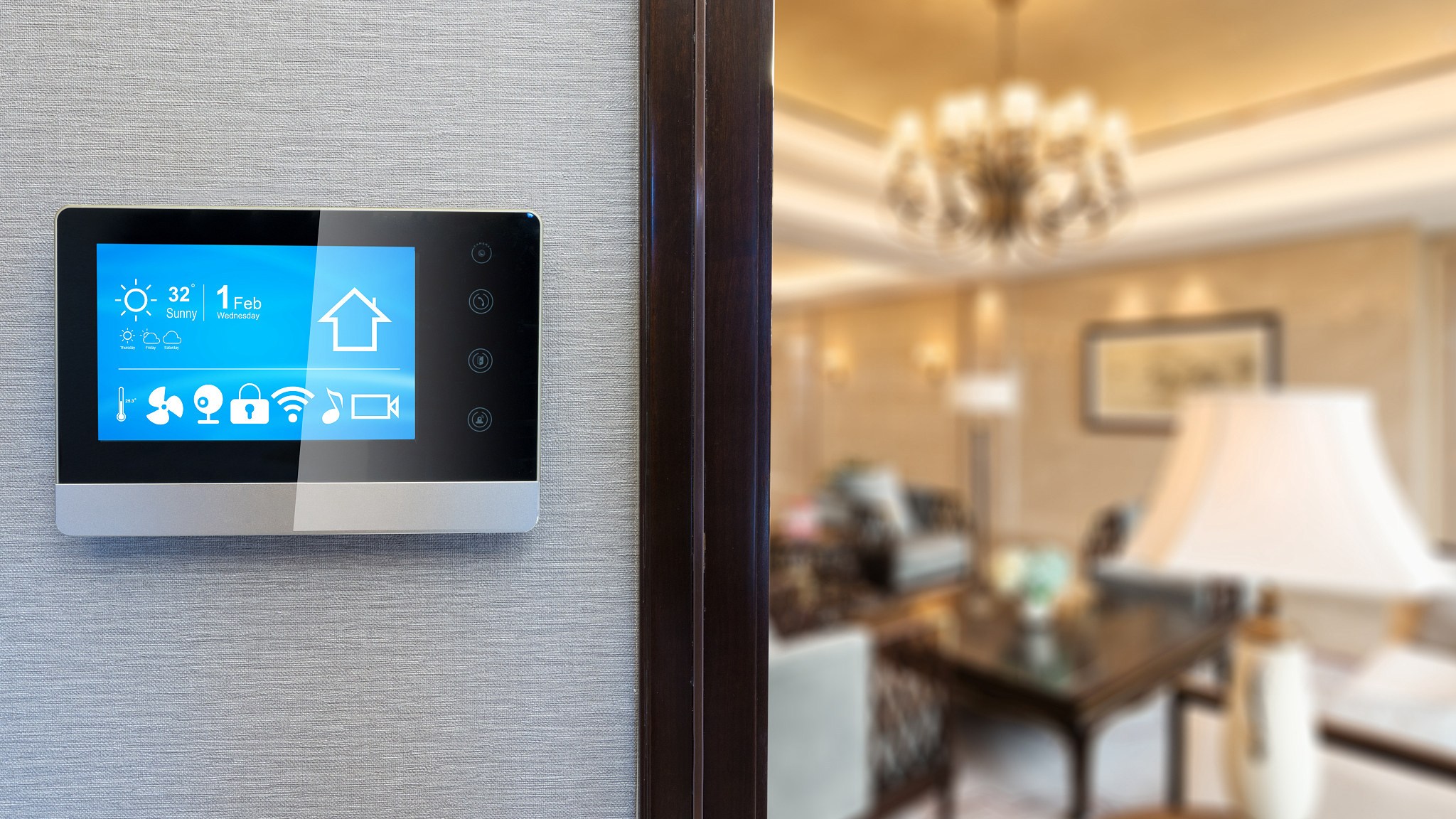
Privacy
09:37, 27-May-2018
After Amazon Echo misfire, ways to protect your own privacy
CGTN

Revelations that an Amazon Echo smart speaker inadvertently sent a family’s private conversation to an acquaintance highlights some unexpected risks of new voice-enabled technologies.
A US family in Portland reported to the electronic company that a private conversation in their home was recorded by Amazon’s Alexa, a voice-controlled smart speaker, and sent to an acquaintance in Seattle, which was confirmed by the company on Thursday.
According to Amazon, the fault was an “unlikely” series of inadvertent vocal cues that triggered the speaker, causing it to begin recording and then leading it to interpret the subsequent conversation as a “send message” request.

Close-up of Amazon Echo smart speaker and voice assistant with illuminated blue light ring, a device which uses the Amazon service from Amazon to recognize and respond to users' voice commands, in a suburban home setting, May 7, 2018. /VCG Photo
Close-up of Amazon Echo smart speaker and voice assistant with illuminated blue light ring, a device which uses the Amazon service from Amazon to recognize and respond to users' voice commands, in a suburban home setting, May 7, 2018. /VCG Photo
There’s no way to eliminate these sorts of privacy risks short of unplugging entirely. But you can minimize the odds of unpleasant privacy surprises with these tips:
Kill the mic
Most smart speakers have a physical button to disable the microphone, so a private conversation can’t be recorded to begin with. You can hit that when you’re having sensitive conversations. The button on the Echo will turn red; other devices have similar cues. It doesn’t make sense to keep the mic disabled throughout the day, though. If the Echo can’t hear you, it won’t be able to order you more toilet paper or play smooth jazz.
Limit the mic
Disabling the microphone isn’t practical on a smartphone, but you can limit what apps have access to it. Go to the settings and turn off mic access to all but essential apps such as voice recorders or video conferencing. Netflix doesn’t really need voice access; you can simply type the name of the show you’re searching for.

In this Sept. 27, 2017 file photo, the Amazon Echo Plus (C) and other Echo devices sit on display during an event announcing several new Amazon products by the company in Seattle. /AP Photo
In this Sept. 27, 2017 file photo, the Amazon Echo Plus (C) and other Echo devices sit on display during an event announcing several new Amazon products by the company in Seattle. /AP Photo
About that camera
Facebook CEO Mark Zuckerberg famously puts a piece of tape over his laptop’s camera to prevent spying if anyone were to hack his device. Buy yourself a roll. Or use bandages. If you have a home-security camera that’s connected to the internet, turn the camera to the wall when you’re home. Just remember to turn it back before you leave, or you defeat the point of having a security camera.
Block the signals
For smartphones and other gadgets you carry with you, a “Faraday bag” that blocks electromagnetic waves can help prevent unwanted spying. The good ones will block cellular and other signals, meaning privacy-compromising information such as your location won’t leak out either. Just remember, your phone won’t get any calls while it’s in the bag – that’s the whole point.
Be informed
Apple, Samsung and other tech companies have worked over the years to ensure that their products work “out of the box,” without users having to pore through lengthy manuals and operating instructions. The downside is that users are often unaware of all the things their gadgets can do, good or bad. Checking reputable online reviews, how-to guides and even instructional videos will help you get the most out of new technologies. They’ll also tell you about any known glitches and risks.

Smart home technology /VCG Photo
Smart home technology /VCG Photo
Of course, the safest approach is not to buy a new gadget in the first place. That might not be practical for smartphones these days, but do you really need a smart speaker or a television set that’s connected to the internet? (As it turns out, it’s actually difficult to buy a TV without “smart” capabilities these days, but nothing says you have to connect it at home.)
From toothbrushes to slow cookers to toys, if companies can dream it up, it’s out there. Companies often release smart gadgets without thinking through the risks and ensuring their security. This makes them easy targets for malicious hackers. This is especially true with manufacturers that aren’t well known or that specialize in toys and other non-tech businesses.
(Top image: An Amazon Echo Spot displays a video feed of the backyard in an Amazon experience center in Vallejo, California, US, May 8, 2018. /VCG Photo)
Source(s): AP

SITEMAP
Copyright © 2018 CGTN. Beijing ICP prepared NO.16065310-3
Copyright © 2018 CGTN. Beijing ICP prepared NO.16065310-3